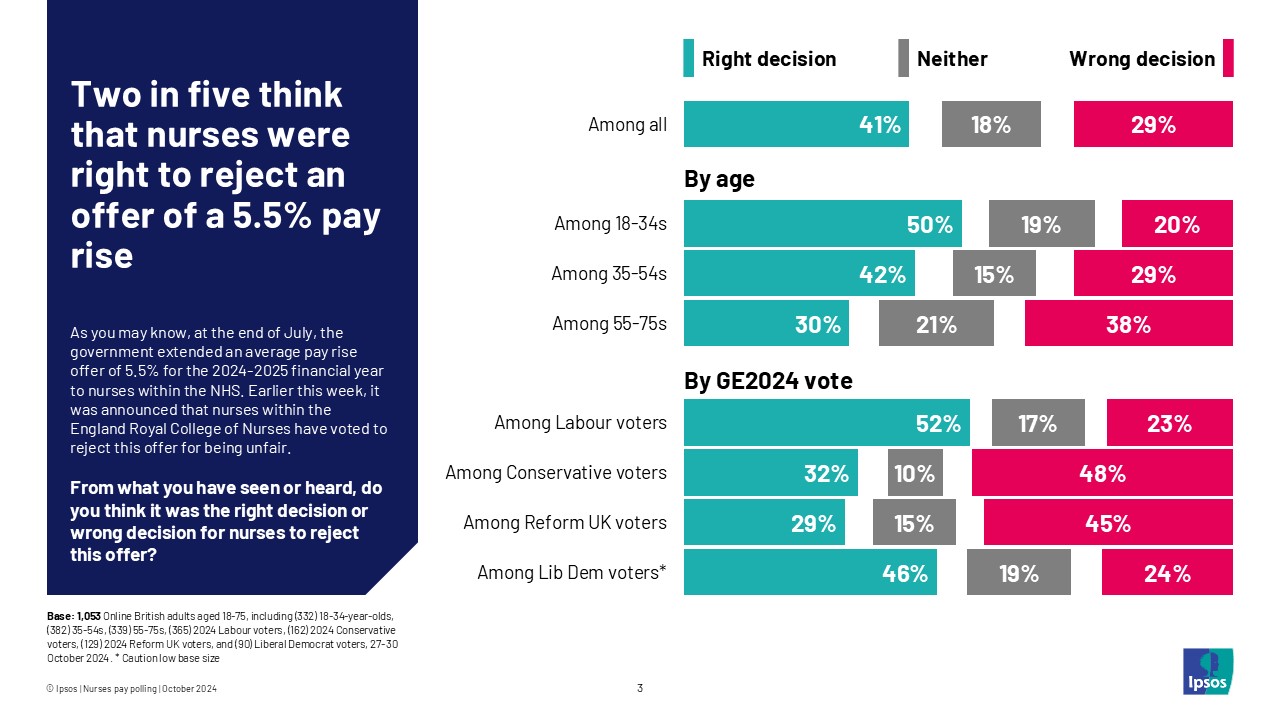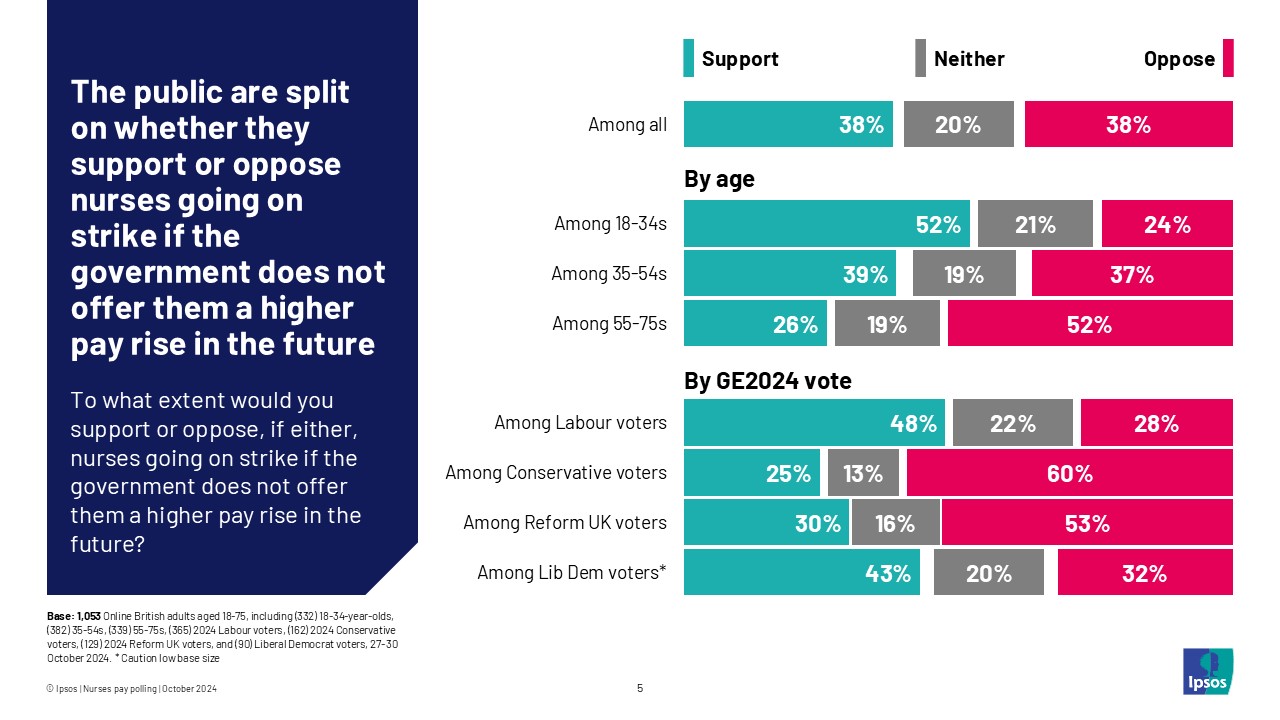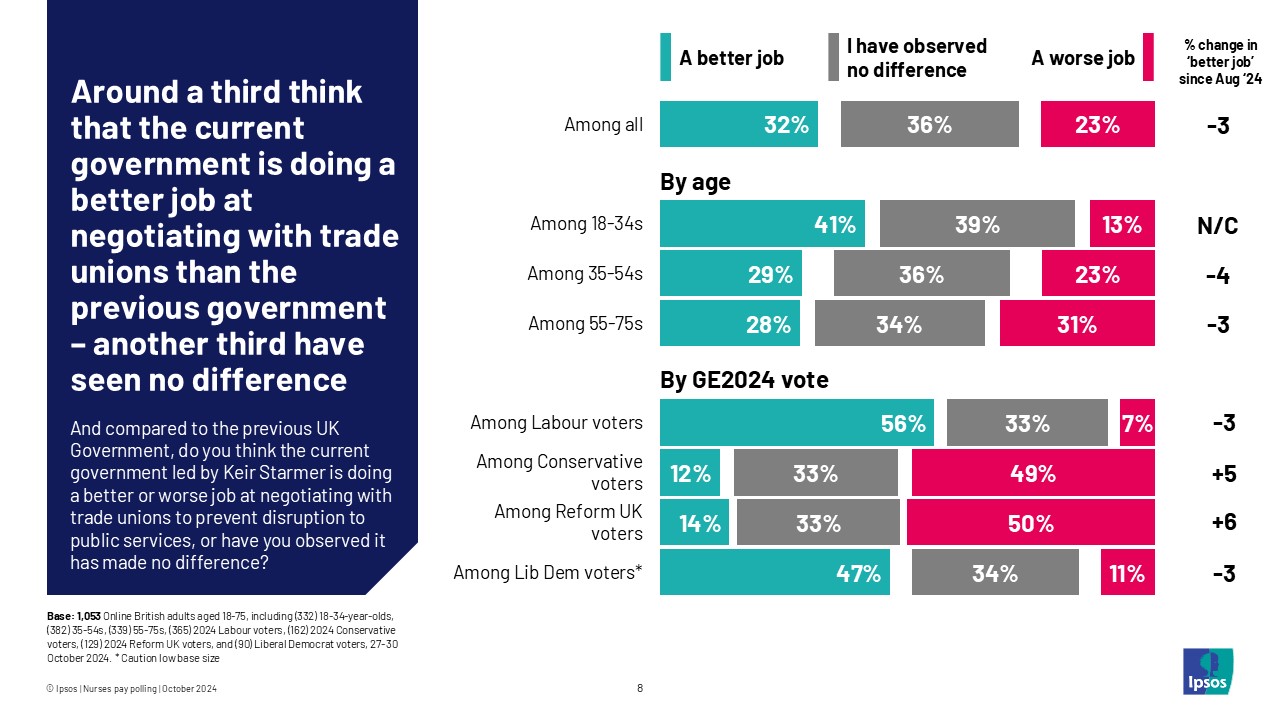Two in five Britons think nurses right to reject offer of 5.5% pay rise
A new Ipsos survey has examined public attitudes towards nurses’ pay in Britain, support for potential industrial action, and perceptions about government performance on negotiating with trade unions.
Perceptions of Nurses’ Pay
- Care Workers and Nurses Perceived as Underpaid: A significant majority of Britons believe care workers (71%) and nurses (60%) are paid too little. This marks an 8 ppt increase in the perception of care workers being underpaid.
- Nurses' Pay Rise Rejection: When asked about the government's recent offer of a 5.5% pay rise for NHS nurses, two in five Britons (41%) think nurses made the right decision to reject this offer.

- Value for Money and Pay Rises: The public is fairly divided on whether the proposed pay increases for nurses (5.5% rise) and resident doctors (formerly known as junior doctors, 8% rise) offer good value for money. 39% of Britons believe that they do, and 22% say that they don’t (27% neither).
- Support for Industrial Action: The public are split on whether they support or oppose nurses going on strike if the government does not offer them a higher pay rise in the future. 38% of respondents express support for industrial action should the government not improve the pay offer, while an equal percentage oppose it (20% neither).

Who is to blame?
- Attribution of Blame for Disputes: Nearly half (46%) of the public believe the previous Conservative government is most at fault for the ongoing industrial disputes with nurses, compared to only 12% who blame the current government led by Keir Starmer. 1 in 10 (10%) believe the nurses themselves are more at fault for the dispute lasting this long.
- Government Performance in Negotiations: Around a third (32%) of Britons think that the current government is doing a better job at negotiating with trade unions than the previous government. Another third (36%) have seen no difference, and 23% believe they are doing a worse job. Support for the government is highest among those aged 18-34 (41%), and those who voted Labour in the last general election (56%).

Commenting on the findings, Kate Duxbury, Ipsos Research Director, Health and Social Care said:
Although the public broadly think nurses made the right decision rather than the wrong decision to reject the 5.5% pay rise for 2024/25, they are divided in their support for strikes if nurses are not offered more. The Sunak government takes more of the blame for the industrial dispute with nurses lasting this long, but the Starmer government can’t be complacent – a third think it is doing a bad job at negotiating with trade unions to prevent disruption to public services, more than think it is doing a good job.
Technical Note:
- Ipsos interviewed a representative sample of 1,053 British adults aged 18-75. Interviews were conducted online between 27th-30th September 2024.
- Data are weighted to match the profile of the population. All polls are subject to a wide range of potential sources of error.



